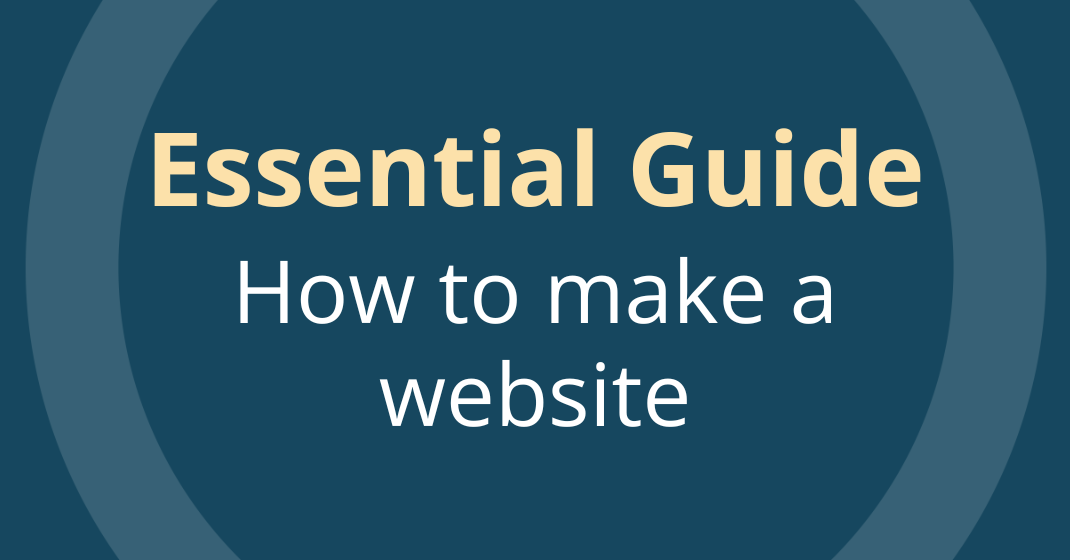Having a website is more than just a luxury—it’s a necessity. If you own a small business, work in a creative field, or want to share your passion, a good website is important. It can serve as your digital calling card.
Getting Started: Understanding Your Digital Goals
Before diving into the technical details, take a moment to reflect on your objectives. The foundation of a successful website lies in crystal-clear purpose and strategic thinking. Understanding your motivations will guide every decision you make moving forward.
Ask yourself:
- What do I want to achieve with my website?
- Who is my target audience?
- What unique value can I offer?
What is Social Media and Website Synergy?
Your website and social media channels work together. They’re not separate entities but related platforms that tell your brand’s story. Understanding how to leverage both can dramatically improve your online visibility and create a cohesive digital presence.
Choosing the Right Platform
Selecting the perfect website builder doesn’t have to be difficult. The digital landscape offers numerous options that cater to different skills, budgets, and objectives. Finding the right platform can change your website creation from a hard task to an exciting journey of self-expression.
Look for platforms that offer:
- Intuitive design interfaces that make website building accessible, even for complete beginners with no technical background.
- Mobile-responsive templates that ensure your site looks fantastic on smartphones, tablets, and desktop computers.
- Built-in marketing tools that help you attract and engage your target audience more effectively.
- Affordable pricing options that provide excellent value without breaking the bank.
Popular choices cater to different skill levels and budgets, each bringing unique strengths to the table.
Crafting Your Digital Identity
Domain Selection: Your Online Address
Think of your domain name as your digital home address. Often, the first impression visitors get of your online presence is crucial. So, spending time and thought on this key element is important. A well-chosen domain can instantly communicate your brand’s personality and purpose.
Keep these tips in mind:
- Choose something short and memorable that rolls off the tongue and sticks in people’s minds.
- Align it with your brand name or core offering to create immediate recognition.
- Consider purchasing multiple extensions to protect your brand and prevent competitors from using similar addresses.
- Use a reputable domain registrar with good customer support and transparent pricing.
Design Principles for Engaging Websites
Great website design goes beyond aesthetics. Creating an intuitive, user-friendly experience guides visitors effortlessly through your digital space. Your design should feel like a welcoming path that leads visitors exactly where they want to go.
Key design considerations include:
- Clear, logical navigation that helps visitors find information quickly and easily.
- Consistent visual elements that create a cohesive and professional look across all pages.
- Mobile-friendly layout that adapts seamlessly to different screen sizes and devices.
- Fast loading times that keep visitors engaged and prevent them from becoming frustrated.
Content: The Heart of Your Website
What is Social Media’s most powerful companion? Compelling content directly addresses your audience’s needs, desires, and challenges.
Your website’s content should:
- Speak directly to your audience in a friendly, approachable tone that feels like a personal conversation.
- Solve their problems by providing genuine, actionable insights and solutions.
- Use clear, simple language that avoids unnecessary jargon or complicated terms.
- Incorporate relevant keywords naturally, focusing on providing value rather than forcing search engine optimization.
Essential Pages Every Website Needs
Ensure your website includes:
- A welcoming homepage that immediately communicates your value proposition and invites visitors to explore further.
- An authentic about page that tells your story and helps visitors connect with the human behind the website.
- Clear service or product information that explains exactly what you offer and why it matters.
- Easy-to-find contact details that make it simple for potential clients or collaborators to reach out.
- Optional (but recommended) blog section that demonstrates your expertise and provides ongoing value to your audience.
Technical Maintenance and Growth
Websites aren’t static entities. They’re living, breathing digital spaces that require consistent care and attention. Think of your website like a garden that needs regular nurturing to continue flourishing and growing.
Successful website management involves:
- Content updates that keep your information current and relevant.
- Performance checks to ensure smooth, fast user experience.
- Security monitoring to protect your digital assets and visitor data.
- Continuous improvement based on user feedback and changing digital trends.
Final Thoughts
Making a website can feel overwhelming. However, with patience and the right steps, you can create a professional online presence that represents you well.
Pro tip: Don’t aim for perfection on your first attempt. Websites evolve, just like businesses and personal brands do.
